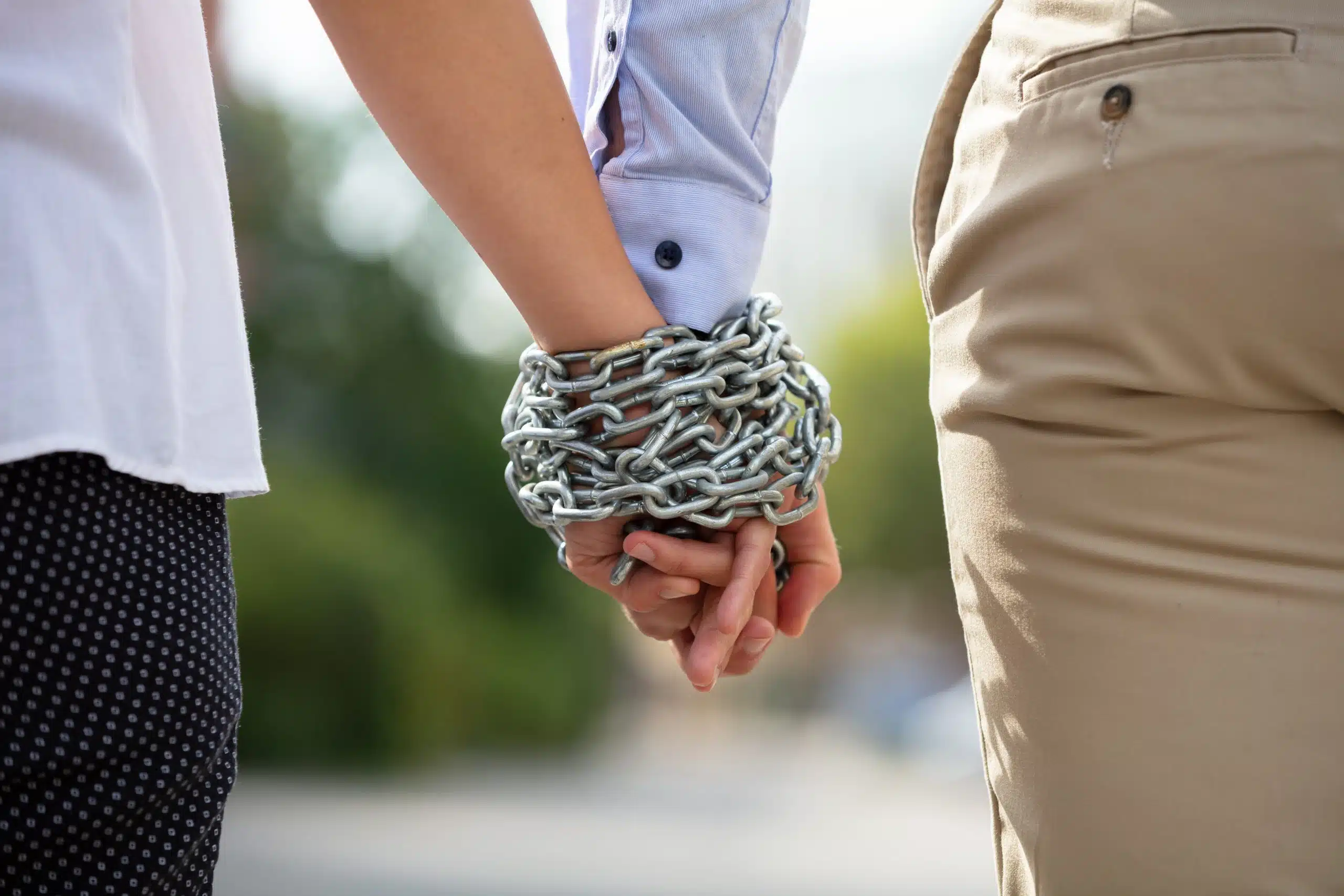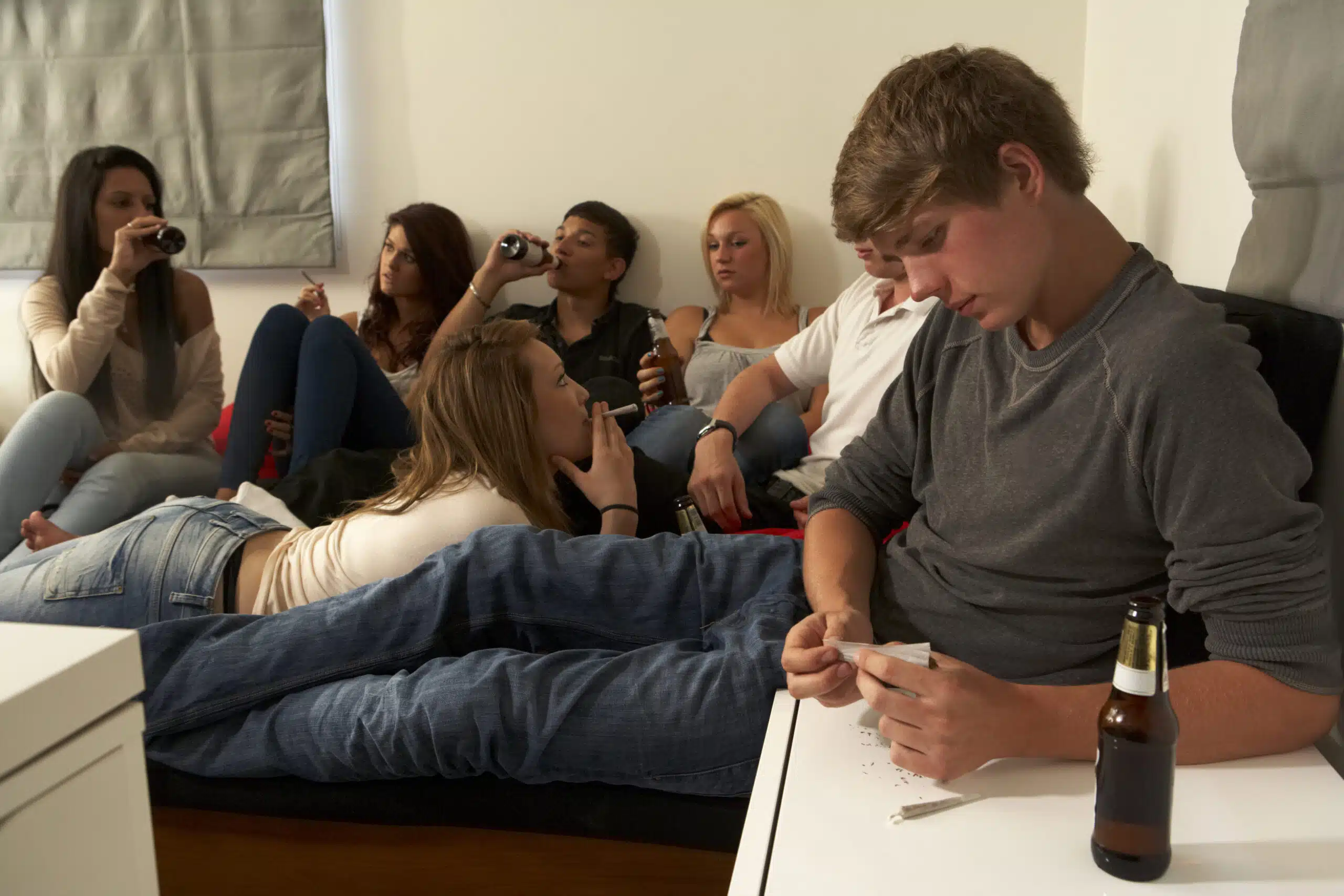
What Does Codependency Look Like?
Healing and recovering from a mental health struggle or addiction is challenging for anyone, regardless of age. When codependency occurs, it adds a layer of complexity to the recovery process. This is especially challenging when teens struggle with a mental health struggle or substance use disorder and a parent, loved one, or caregiver acts as a codependent.
Codependency vs. Enabling Behaviors
Codependency and enabling behavior are similar ideas, and both are easy to overlook if one doesn’t know what to look for. For a parent or guardian, codependent behaviors and enabling can occur inadvertently when trying to help your teen manage complex mental health challenges. Understanding the difference between codependent behaviors and enabling behaviors is important to better understand what type of support and guidance you need to learn how to stop being codependent.
What is Codependency?
Codependency is a relationship pattern that results when one person consistently puts another’s (a child, a spouse, a friend, etc.) needs before their own. Codependents are those who are knowingly or unknowingly taken advantage of by others. Codependency happens with an unfortunate frequency where mental health and addiction are concerned. There is actually potential to do more harm than good by codependents granting a person with addictive behaviors or other mental health challenges permission to take advantage of them or the situation continually. The codependent person is also known as an enabler.
What is Enabling Behavior?
Enabling behavior occurs when another person (often a codependent) helps or encourages someone to continue engaging in harmful or dangerous behaviors. This encouragement can be either direct or indirect. Some examples include hiding addictive behaviors from others, making excuses for unhealthy or aggressive behaviors, providing money to someone struggling with addiction, or helping someone “cover-up” the consequences of their harmful behaviors related to a mental health challenge such as an eating disorder.
What Causes Codependency?
Knowledge of codependency and its relationship to addiction and mental health disorders has been around for over 70 years. It was first noticed by psychotherapists working with alcoholics. Researchers noticed that a spouse or partner often helped maintain addictive behavior through various means, such as helping procure alcohol or supplying money to purchase alcohol.
Several contributing factors can lead someone to act like a codependent. Some common examples include trauma during childhood, a history of substance abuse, complex past relationships, chemical imbalances in the brain, and current factors in the home environment.
Recognizing Codependent Symptoms
People with codependent behaviors often display specific symptoms. They include some or all of the following:
- Struggles with self-esteem often resulting from emotions like guilt, shame, or inadequacy linked to previous life events.
- An overwhelming need to please others.
- The inability to say “no” even when it would be best.
- Difficulties setting and maintaining healthy boundaries.
- Difficulties with healthy communication.
- Consistent worry about others when they experience fear or worry.
- The need to control people, situations, or personal feelings.
- Adverse and painful emotions such as depression and resentment, which are often dulled by “helping “others.
Codependency and Addiction
It is important to remember that addiction does not impact only adults. Thousands of youth and teens use drugs or alcohol for the first time each day. Approximately 2/3 of US youth have tried alcohol before reaching 12th grade, and another half of high school students have used marijuana. Similar statistics apply to teens who use or experiment with tobacco and prescription pain medications during their teen years. Although it remains illegal for people under age 21 to consume alcohol, data indicates adolescents and teens between ages 12 and 20 consume about 1/10th of all alcohol nationwide.
Codependent behavior by a parent, guardian, or friend can be dangerous for a teen suffering from addiction. The presence of this behavior doesn’t ask or encourage them to change their behavior or, in any way, show them their behavior has negative and potentially dangerous consequences.
For relationships involving codependency and addiction, the codependent often does what they can to support the addict regardless of any adverse consequences. The codependent will often help the addict engage in harmful behaviors, clean up after, and cover for them when family or friends question their actions or behaviors. This is especially true when the addict is their child. They may also offer money or other support to help the addict continue feeding their addiction. Some common examples of unhealthy and possibly dangerous enabling behaviors often shown by codependents include those listed below:
- Taking over responsibilities of another when they cannot or will not complete them.
- Making excuses or “covering up” for another when they have accidents or make errors.
- Helping them get out of financial difficulties related to substance abuse or other sources.
- Glossing over the individuals’ actions and destructive behaviors
Who Does Co-dependency Affect?
Knowing how a teen struggling with a mental health challenge or addiction may react to the perceived support from a codependent person, one may wonder if they should always avoid helping. The answer is not always. The goal is to ensure healthy caregiving from care providers rather than codependent caretaking. Codependent caretaking is unhealthy and can lead to further dysfunction.
Codependency affects more than just the person experiencing mental health and addiction symptoms. Acting in a codependent way can have a harmful effect on the codependents’ spouse, children, co-workers, parents, or others who are a part of their lives. This can lead to dysfunction within their family unit.
A dysfunctional family may unintentionally feed into further emotional challenges. This can cause members of the family outside of the codependent and their teen to feel anger, shame, or anger related to the behaviors occurring within the family.
How to Stop Being Codependent
Enablers or codependent caregivers often have the best intentions at heart when they help their loved ones or friends with the challenges linked to their mental health or addiction struggles. Their goal is to keep them safe by protecting them from perceived danger or emotional struggle. However, it is essential to keep in mind that refusal to help can be equally (if not more) beneficial.
Unfortunately, the truth is as long as someone is there to offer “safety” or rescue whenever behavioral challenges arise, your teen will never learn safer or healthier ways to manage their challenges. They will also not see any reason to address the adverse consequences of their actions. They will likely continue on the same course without regard to the difficulties it could be causing.
It is vital for a codependent person not to take responsibility for their loved one’s actions or behaviors. It is also necessary for the codependent individual to admit that they did not create another’s problems. Therefore it is not their responsibility to fix them when they become overwhelming. As a parent, the best way to help your teen address their challenges is to seek help at a teen-focused treatment center like Beachside.
Getting Help for Codependency
As previously mentioned, a codependent person often tries to fix others, even when professional treatment would be best. This can be dangerous and lead to ongoing challenges for both the codependent and their friend, loved ones, or peers. Mental health and addiction treatment work best when they occur as part of a comprehensive treatment program designed to help teens manage their symptoms. It is also best to seek help at a facility where skilled care providers understand the challenging nature of co-occurring disorder treatment and can help your teen safely and successfully find freedom from drugs or alcohol if needed.
At a treatment center like Beachside, your teen will receive the help they need to address mental health or substance use concerns. But, it is important for members of the family to participate in therapy as well. Especially if a family member struggles with codependent behaviors. During family-focused therapy sessions, a skilled treatment professional will work with your teen and codependent family member(s) to help those operating in an enabling capacity to understand the impact their behavior may be having. Although your teen’s behaviors or actions may be harmful or dangerous, it is vital for the enabler or codependent to understand that their actions only further the potential for adverse or even detrimental consequences. If a codependent person continues to cover up for, defend, or even encourage harmful behaviors, your teen is unlikely to receive the help they need to start on the road to recovery.
It is also imperative that the codependent individual receives some form of therapy. Upon completing a therapy program, your teen will return home to the same family dynamic they left behind to seek help. If the family member or parent has been acting in a codependent way and does not understand how to stop codependent behaviors, the chances for relapse are more significant.
If you are in a relationship where you are the codependent or the enabling party, don’t underestimate the benefits of choosing family therapy at Beachside. Understanding how codependent or enabling behaviors only further complex and challenging behaviors for your loved one or family member can be vital to their recovery and ongoing emotional health and wellbeing. It can be difficult to acknowledge when your children need help to overcome a physical, emotional, or behavioral challenge. It is not abnormal to want to help and provide support in any way possible. Unfortunately, this often presents as codependent or enabling behavior.
Seeking help at a treatment center like Beachside can provide the care your teen and family need to overcome mental health challenges. Our family therapy programs offer the education and tools you need to learn how to stop being codependent. If you would like to learn more about our teen-focused treatment center at Beachside and how our family programs can help you, contact our admissions team today.
https://www.cdc.gov/ncbddd/fasd/features/teen-substance-use.html




